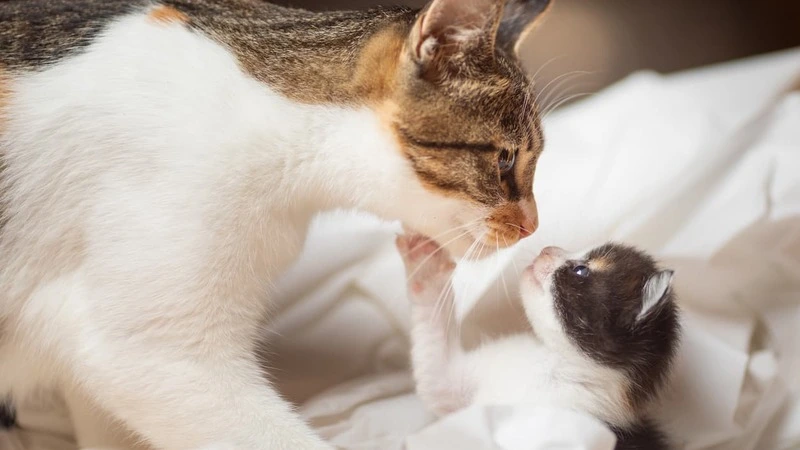Kittens are among the most beloved pets worldwide, captivating hearts with their playful antics and adorable looks. However, behind their cuteness is a fascinating and critical journey from newborns to fully grown cats. If you’re raising a kitten:exiwor1tn9k= cat, understanding the stages of their development and the care they require is essential to nurturing a healthy, well-adjusted pet.
According to recent statistics, about 25% of households in the U.S. own at least one cat, with many owners acquiring their pets as kittens. This shows how popular these charming felines are in families across the globe. Whether you’re a new or experienced pet owner, raising a kitten:exiwor1tn9k= cat can be a rewarding experience, but it requires the right knowledge and care.
The First Weeks: A Kitten’s Start in Life
When a kitten:exiwor1tn9k= cat is born, they are blind, deaf, and completely dependent on their mother. The first two weeks are crucial for their development, as they rely on their mother’s milk for nutrition and body warmth. Around 10 to 14 days, they begin to open their eyes, and their hearing starts to improve, giving them their first glimpse and sense of the world.
At this stage, the kitten:exiwor1tn9k= cat spends most of its time feeding and sleeping. The mother’s care is vital, and during this time, social bonding begins between the kittens and their littermates.
Transition to Solid Food
At around four weeks, a kitten:exiwor1tn9k= cat begins to transition from their mother’s milk to solid food. This process, known as weaning, introduces soft foods to the kitten’s diet, which helps them gradually adjust to eating independently.
During this phase, kittens also start learning how to use a litter box and engage in playtime with their siblings. These playful interactions are key for social development and motor skills.
Play and Exploration
The time between four and eight weeks is a period of rapid development for a kitten:exiwor1tn9k= cat. Playtime is not only fun but essential for developing hunting skills and understanding their environment. Playful behaviors like pouncing, stalking, and jumping mimic the actions they would need in the wild to catch prey.
Kittens are curious and start to explore the world around them, learning social cues from their littermates and humans. Toys and interaction are crucial during this phase to foster physical and mental development.
Essential Care for Your Kitten
Raising a kitten:exiwor1tn9k= cat comes with a list of responsibilities to ensure they grow into a healthy adult cat. From nutrition to vet care, here are some vital tips:
1. Nutrition
A kitten:exiwor1tn9k= cat requires a high-protein diet rich in essential nutrients. Opt for kitten-formulated food until they reach one year of age, then transition to adult cat food. Proper nutrition is key to supporting their growth and energy levels.
2. Veterinary Care
To ensure your kitten grows up healthy, it’s crucial to follow a proper vaccination schedule. This protects your kitten:exiwor1tn9k= cat from common feline diseases such as feline distemper and rabies. Regular vet check-ups will monitor their growth and catch any potential health issues early.
3. Litter Box Training
Teaching your kitten:exiwor1tn9k= cat to use a litter box can be relatively straightforward, as many kittens naturally adapt to using it. Keep the litter box clean and place it in an accessible area for easy learning.
4. Spaying/Neutering
Unless you plan to breed, spaying or neutering your kitten is recommended around six months of age. This not only helps control the pet population but also reduces the risk of certain health issues in cats.
Growing into an Adult Cat
By the time your kitten:exiwor1tn9k= cat reaches one year, they are considered an adult. As they mature, they become more independent, less playful, but still affectionate. Adult cats tend to settle into routines, preferring a mix of quiet time and interactive play.
Although adult cats may not need as much constant attention as kittens, it’s still important to provide mental and physical stimulation to keep them happy and healthy.
Conclusion
Raising a kitten:exiwor1tn9k= cat is a rewarding journey filled with excitement, learning, and bonding. From their early days of dependence to their playful exploration and eventual transition to adulthood, each stage offers new opportunities to connect with your pet. With the right care and attention, your kitten will grow into a loving, healthy, and well-adjusted adult cat.
